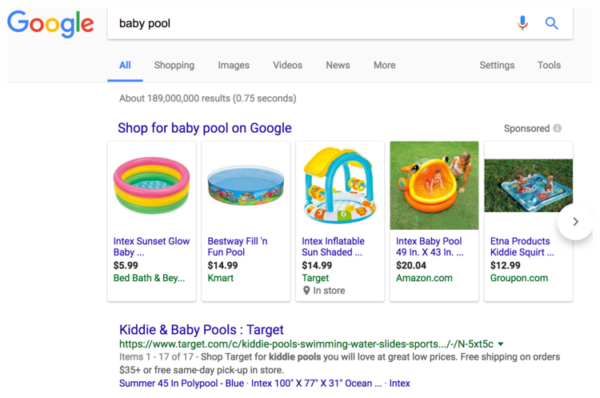
02 Jul The Short Version: Google’s $2.7B Antitrust Fine
The point of it all is to break down the headlines, determine why an issue is important, and reveal the best arguments on each side of the story. This week Cleo looks at Google’s$2.7B antitrust fine and wonders where is the line between giving users a better experience and promoting Google at the expense of market competition?
Note: If you have missed any of Cleo’s blogs, just go to our Home Page, type “The Short Version” into Search (magnifying glass icon) and poof, like magic, all her blogs will appear.
“I love getting feedback every week—thank you! If you want come hang out, debate a thing or two, and meet other Shorties, check out Short Events,” says Cleo.

Cleo Constantine Abrams of the “Short Form,” offering densely packed spins on issues of national and global importance.
What’s happening?
The European Union’s enormous $2.7 billion fine on Google fanned the debate over the question: Where is the line between giving users a better experience and promoting Google at the expense of market competition?
The E.U. and the U.S. have very different answers to this question—and those answers have a huge impact on our lives online and off.
The European Commission, which levied the fine, regulates all commercial activity within the European Union. They found that Google broke EU antitrust laws by abusing its market dominance in one category—search—to promote another Google product—Google for Retail—at the expense of its competitors.
Here’s how that works. Let’s say (just hypothetically) it’s hot today and you think it’s a great idea to buy a baby pool. You search Google for “baby pool,” and see this:

The images at the top are advertisements—companies selling baby pools pay Google for Retail to rank their results in this separate, high-appeal section. The first rival shopping comparison site shows up, on average, on page 4 of the Google’s search results. That’s the root of the $2.7 billion fine. (For context, Google’s annual revenue is $90 billion.)
Why is it important?
In both the E.U. and the U.S., the crucial questions are:
What is a digital monopoly?
What can’t a digital monopoly do?
Both governments are beginning to recognize dominant digital companies as monopolies. In businesses that operate in a world of scarcity, monopolies come from controlling supply. In business (like Google) that operate in online worlds of abundance, monopolies come from controlling demand. That difference has a massive impact on how monopolies are born. Online companies benefit from a virtuous cycle in which consumers attract advertisers, which earns money for the company, which can be used to earn more consumers, etc—all while network effects improve those consumers’ experience. (This is Ben Thompson’s Aggregation Theory, which you can read more about here.) Big digital companies get bigger.
But the E.U. and U.S. have meaningfully different ways of thinking about what digital monopolies can’t do. The E.U. cares most about competition. The U.S. cares most about consumer experience—specifically, prices.
Debate it!
How should we regulate digital monopolies?
Why “The Short Version” on TIO:
Over nine years ago, Telluride Inside…and Out began as a lifestyle webzine. Today, in the full knowledge that Telluride is a window on the world, we continue to bring the “zazz” (short for “pizzazz) of the region to a local, national, and global audience by covering everything from Telluride’s robust cultural economy – major events and festivals – to health and fitness and outdoor adventure. When Telluride travels, we write about places to go, people to meet too. (That’s part of the “Out” part of our handle, the other, obviously, Outdoors.)
And now, this weekly column, “The Short Version,” which offers simple summaries of issues of national and global importance.
“The Short Version” is written by Cleo Constantine Abram, the daughter of Telluride locals Eleni Constantine and Jonathan Abram (and therefore an honorary local and regular visitor) and a digital strategist.
Why “The Short Version”? Because, though we live in Shangri-La, our bubble is not impermeable and the rest of the world is only a click away. Because there is no inconsequential action; only consequential inaction. And because information is power in a moment so many of us are feeling powerless.
More about Cleo Constantine Abram:

Cleo grew up in Washington D.C., lives in New York City, and loves to visit her parents in Telluride. She authors “The Short Version,” a newsletter that explains each week’s most important issue and both sides of the debate around it.
Cleo is a digital strategist now working at Vox, a general interest news site for the 21st century. Its mission is simple: Explain the news. Politics, public policy, world affairs, pop culture, science, business, and more.
Cleo’s work focuses on ways to share, educate, and inform using online platforms. While in college at Columbia University, she guided the school’s entrance into online education through her role as the youngest elected representative to the Columbia Senate, which makes university-wide policy.
She continued her work on online education at TED-Ed, the educational branch of the nonprofit, building new programs and online tools to support high school teachers worldwide.
Continuing her work with TED, Cleo founded and led an early TEDx conference, the organization’s community-specific series.
recently, Cleo returned to school, studying video storytelling at Columbia Journalism School.
Most importantly, Cleo loves to ski.


Sorry, the comment form is closed at this time.